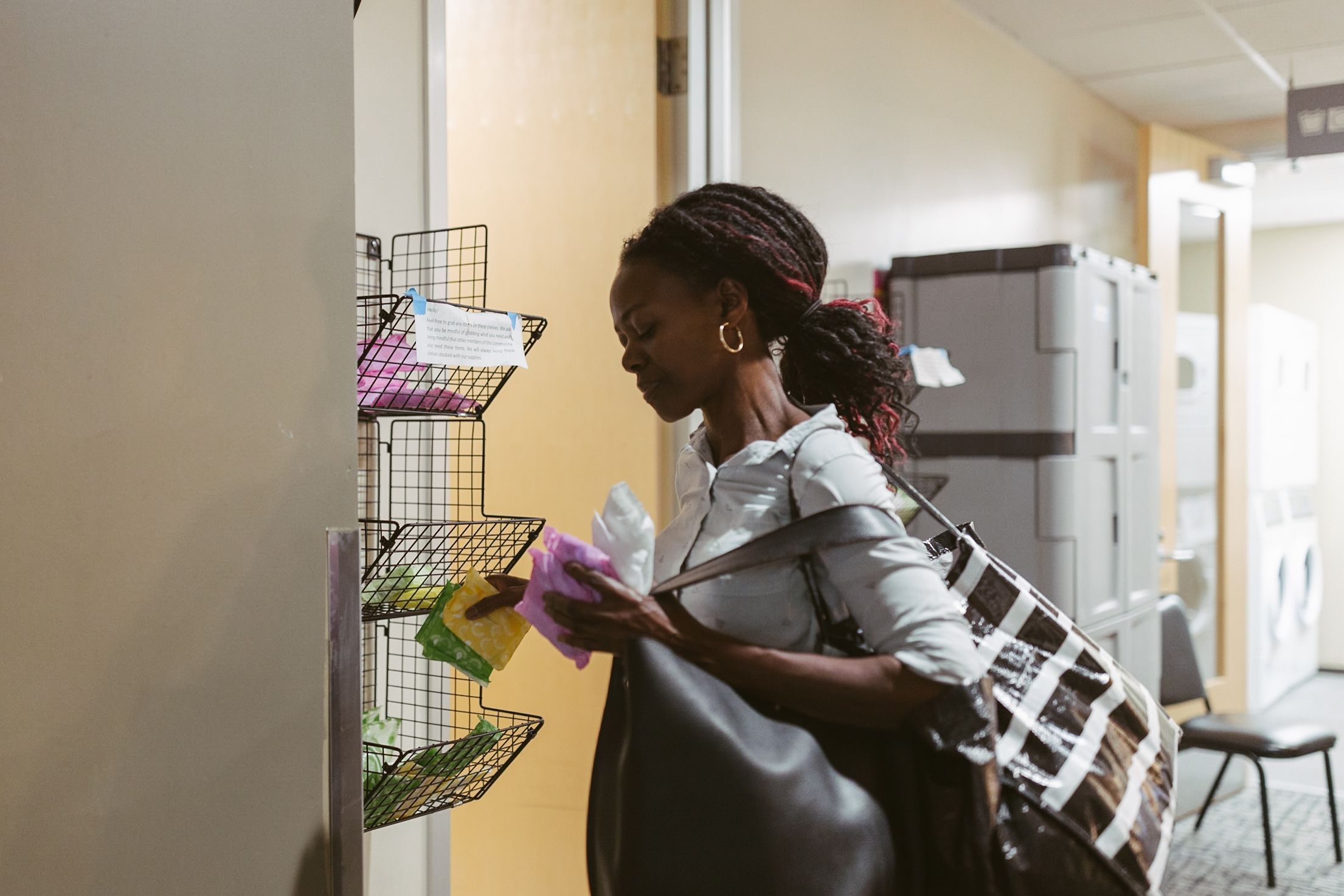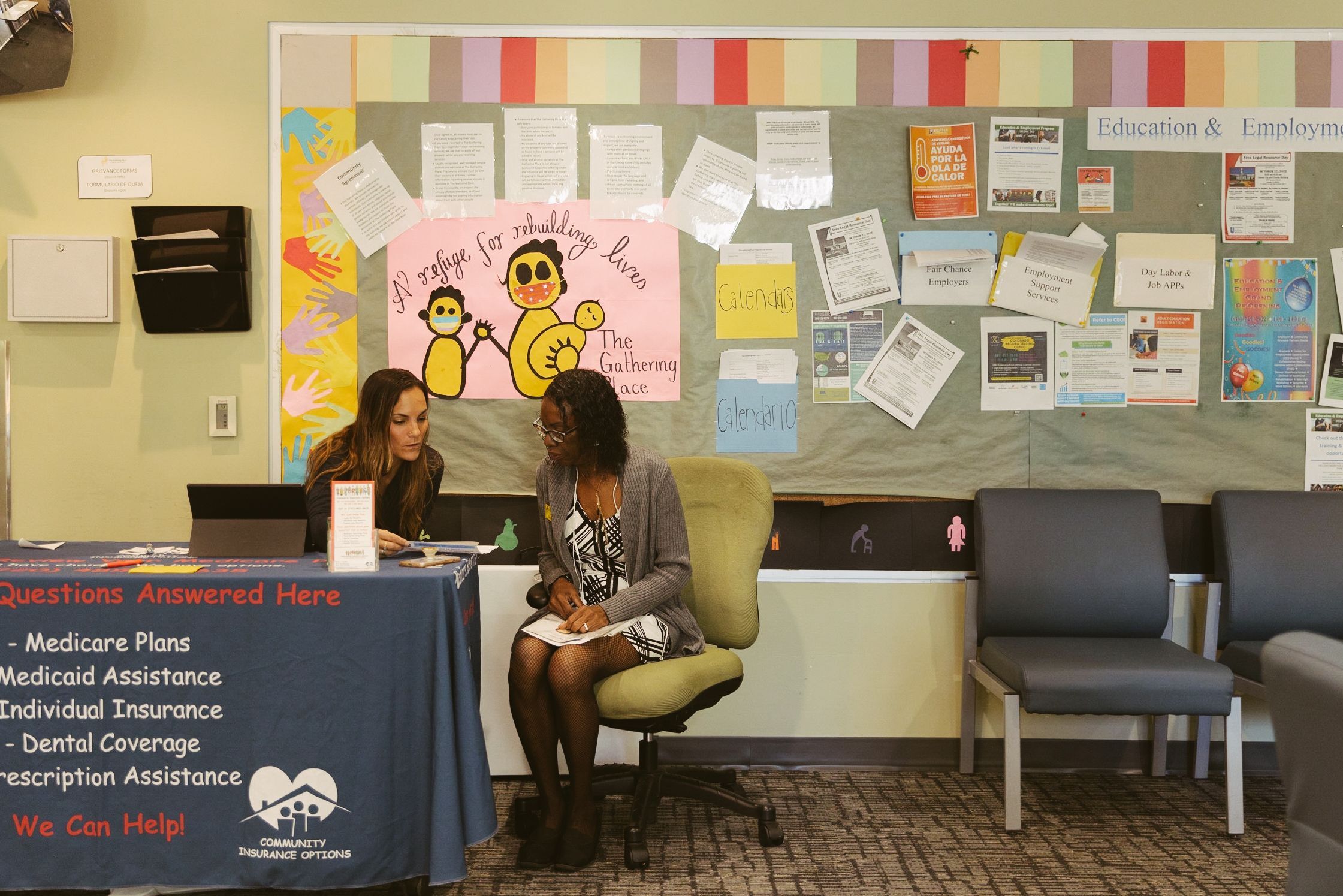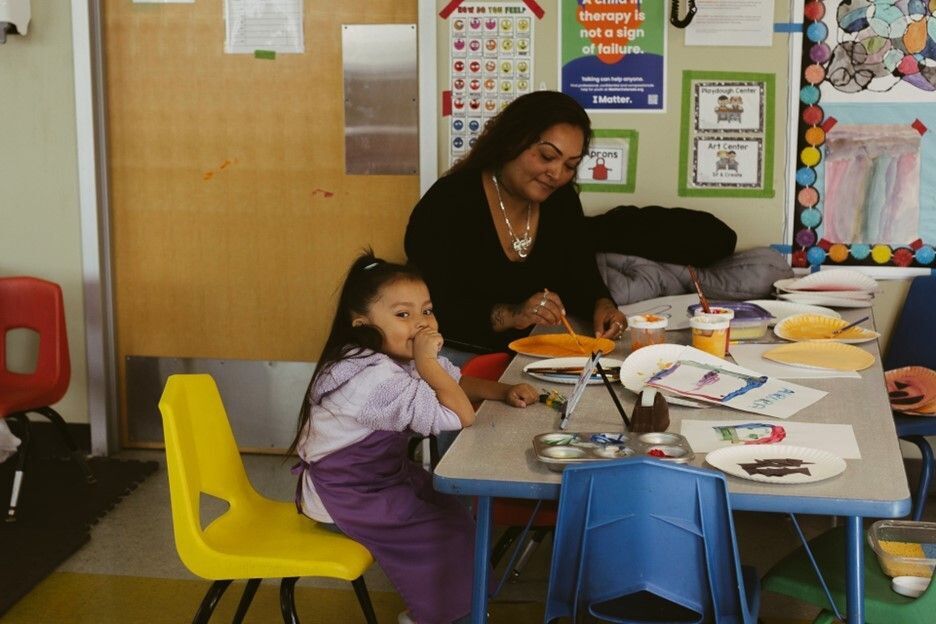
Over 40 million Americans, including over 13 million children, are living in poverty. That translates to nearly 30 million adults and nearly 13 million children lived in food-insecure households [1].
Another 2 in 3 Americans will struggle to afford basic needs, even if they don’t qualify for federal benefit programs like SNAP [2]. Food insecurity, or the inability to access quality, nutritious food, have devastating consequences at all stages of life.
People in poverty—especially women and children—have disproportionately worse health outcomes than those who are financially stable. Compared to high-income neighborhoods, low-income neighborhoods often lack full-service grocery stores, limiting access to nutritious food. These neighborhoods may lack parks or recreational facilities and are often in areas with poor air and water quality [4].
Families in these neighborhoods have limited access to fresh produce. To stretch their budget, parents may dilute or ration infant formula. They will often buy cheap, calorie-dense but nutrient-poor foods. Often, families—single mothers in particular—must make trade-offs between food and other basic needs, like housing, utilities, and transportation [5].
For low-income children, this means that they are likely to be sick more often. When they go hungry or go without proper nutrition, children are unable to concentrate and perform well in school. They experience physical ailments as well and may experience poor growth and develop chronic disease later in life [6].
It gets worse. As these children age into adulthood, they will likely be uninsured, meaning the health problems that they developed during childhood will go untreated.
They will likely try to stretch their budgets the way their parent or parents did—by postponing or forgoing preventive medical care, or by skipping doses of medication to stretch their prescription. One in three chronically ill adults is unable to afford food, medicine, or both. Most must choose one or the other. Adults with special medical diets (such as diabetic diets) may forgo the foods they need because of cost, thus exacerbating their medical issues.
This backfires: those experiencing food insecurity have an extra $1,863 in healthcare expenses each year, compared to food-secure adults. Because of all these issues, food-insecure adults have a shorter life expectancy—shorter by over 8 years as compared to high-income adults [5].
For the women, transgender individuals, and their children that we serve at The Gathering Place, our resources are lifesavers. One member, Terri, came to us while pregnant. She said, “If not for you, I wouldn’t have eaten today.” Visiting representatives help our members sign up for benefits like SNAP, which helps bridge the gap for those experiencing food insecurity. Our food pantry helps stretch their budget—especially since too many of our members live on less than $800 a month.
Finally, our meals ensure that our members have access to fresh, healthy food three times a day. Every year, we serve over 64,000 meals to those who need it most, to people who without us may otherwise go hungry.
Learn more about how you can support our food program here.
SOURCES:
[1] Semega, J.L., Fontenot, K.R., & Kollar, M.A. (2017). Income and Poverty in the United States: 2016. U.S. Census Bureau, Current Population Reports.
[2] Rank, M.R., & Hirschl, T.A. (2015). The likelihood of experiencing relative poverty over the life course.
[3] Bell, J., Mora, G., Hagan, E., Rubin, V., & Karpyn, A. (2013). Access to Healthy Food and Why It Matters: A Review of the Research.
[4] Evans, G.W., & Kantrowitz, E. (2002). Socioeconomic status and health: the potential role of environmental risk exposure. Annual Review of Public Health.
[5] Food Research & Action Center. (2017). The Impact of Poverty, Food Insecurity, and Poor Nutrition on Health and Well-Being.
[6] Ratcliff, C. (2015). Child Poverty and Adult Success. Urban Institute.





